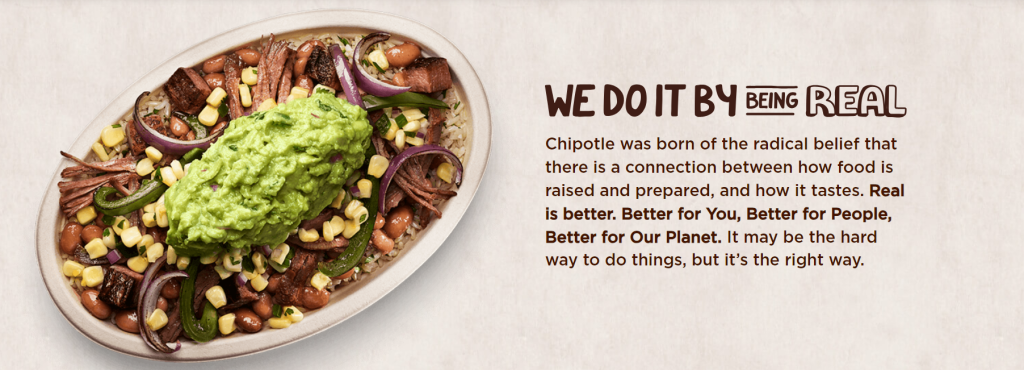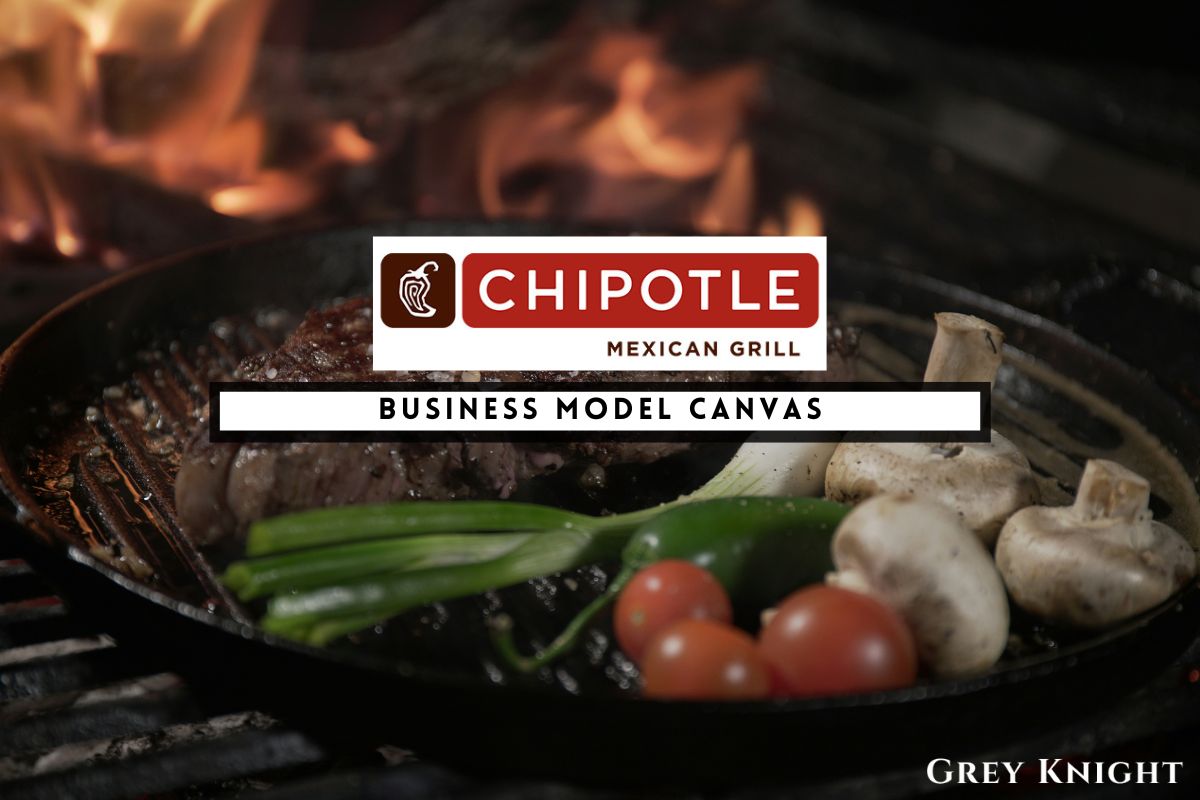Table of Contents
ToggleA Brief History of Chipotle
Chipotle Mexican Grill, Inc. was founded in 1993 by Steve Ells in Denver, Colorado. The first Chipotle restaurant was opened with the goal of providing high-quality, customizable, fast-casual Mexican cuisine made from sustainably sourced ingredients.
As the company grew, it caught the attention of McDonald’s, which became a major investor in 1998. With McDonald’s financial backing and expertise, Chipotle expanded rapidly throughout the United States, going public in 2006.
Over the years, Chipotle has faced various challenges including food safety issues and labor disputes. However, the company has also focused on sustainability and ethical sourcing practices, which has helped to bolster its reputation and attract a loyal customer base.
Despite the challenges, Chipotle has continued to grow and expand. Today, the company operates over 2,800 locations across the United States, as well as in several international markets. Chipotle remains committed to its mission of serving high-quality, responsibly sourced food while continuing to innovate and expand its menu offerings.
Who Owns Chipotle?
Chipotle Mexican Grill, Inc. is a publicly traded company, so it is owned by its shareholders. The top 10 shareholders of Chipotle Mexican Grill, Inc. include mutual funds and institutional investors such as The Vanguard Group, Inc., Fidelity Management & Research Company, BlackRock, Inc., T. Rowe Price Associates, Inc., and SSgA Funds Management, Inc. These institutions hold a significant portion of the company’s outstanding shares and play a significant role in influencing Chipotle’s corporate governance and strategic decisions. While individual shareholders also own a portion of the company, the majority of its ownership is held by institutional investors.
Chipotle Mission Statement

Chipotle Mexican Grill, Inc.’s mission statement is focused on providing high-quality, delicious food while respecting the environment and empowering their employees. The company is committed to sourcing the best ingredients, serving food with integrity, and promoting sustainability in its operations. Chipotle aims to cultivate a better world by supporting local farmers, minimizing their environmental impact, and creating a positive work environment for their employees. Overall, their mission is to do good for people, the planet, and their business.
How Chipotle Makes Money?
Chipotle Mexican Grill, Inc. operates on a fast-casual dining business model. The company makes money through its revenue streams from the sales of burritos, tacos, and bowls, as well as beverages and sides. Customers can choose from a variety of different proteins, toppings, and salsas to customize their order and pay for their meal at the checkout counter. Additionally, Chipotle also generates revenue from its online ordering and delivery services, as well as its catering and special events business. Overall, Chipotle’s revenue stream is primarily driven by its in-store dining and takeout services, with an increasing focus on digital sales and alternative dining options.
Chipotle Business Model Canvas
The Business Model Canvas is a strategic management tool that provides a visual overview of an organization’s key business components. It includes nine essential subheadings, which are Customer Segments, Value Propositions, Channels, Customer Relationships, Revenue Streams, Key Resources, Key Activities, Key Partners, and Cost Structure. When these subheadings are thoroughly explored and analyzed, they can help businesses to identify opportunities to innovate, improve efficiency, and create value for their customers.
Customer Segments:
– Chipotle Mexican Grill, Inc. targets a diverse range of customer segments, including health-conscious individuals, millennials, families, and vegetarians.
Value Propositions:
– Chipotle offers customers high-quality, customizable Mexican-inspired food made from responsibly sourced ingredients.
Channels:
– Chipotle primarily uses a combination of physical locations (stores) and an online ordering app to reach its customers.
Customer Relationships:
– Chipotle focuses on building strong relationships with its customers through personalization, engagement on social media, and providing an exceptional customer experience.
Revenue Streams:
– Chipotle generates revenue through the sale of its food products and branded merchandise.
Key Resources:
– Chipotle’s key resources include its brand reputation, supply chain, culinary team, and technology infrastructure.
Key Activities:
– Chipotle engages in activities such as menu development, marketing, employee training, and store operations to deliver its value proposition.
Key Partners:
– Chipotle collaborates with suppliers, delivery partners, and technology vendors to support its operations and expansion.
Cost Structure:
– Chipotle’s costs are primarily attributed to food and packaging, labor, rent for store locations, marketing, and technology investments.
Chipotle Mexican Grill’s Competitors
Chipotle Mexican Grill, Inc. faces competition from various fast-casual Mexican food chains that offer similar menu items and target a similar customer base. Some of the top competitors of Chipotle are Qdoba Mexican Eats, Moe’s Southwest Grill, Taco Bell, Baja Fresh, and Del Taco. These chains offer a range of Mexican-inspired dishes, often at lower price points, and compete with Chipotle for market share in the fast-casual dining space.
Chipotle SWOT Analysis
Strengths:
1. Strong brand recognition
2. Customizable menu options
3. Commitment to using fresh ingredients
4. Wide presence with over 2,800 locations
5. Strong customer loyalty
Weaknesses
1. Food safety concerns in the past
2. Reliance on a limited menu offering
3. Vulnerability to changing consumer preferences
4. Limited international presence
5. High operating costs
Opportunities:
1. Expansion into international markets
2. Introducing new menu items to attract different customer segments
3. Embracing sustainable and environmentally friendly practices
4. Partnering with food delivery services to reach more customers
5. Diversify the menu to include more dietary options (vegan, gluten-free, etc.)
Threats:
1. Intense competition in the fast-casual and fast-food industry
2. Potential negative impact of foodborne illness outbreaks
3. Rising food and labor costs
4. Economic downturns affecting consumer spending
5. Changing consumer preferences toward healthier eating options
Concluding Analysis
In conclusion, Chipotle Mexican Grill, Inc. has successfully built a strong business model that focuses on sustainability, quality ingredients, and customer satisfaction. As an analyst, I am impressed by the company’s ability to adapt to changing consumer preferences and capitalize on the growing demand for healthy, customizable fast-casual dining options. With a proven track record of expansion and innovation, I believe that Chipotle is well-positioned for continued success in the future. The company’s commitment to ethical sourcing and its dedicated customer base provide a solid foundation for long-term growth. Overall, I am optimistic about the prospects for Chipotle and look forward to seeing how the business evolves in the coming years.
Additional Resources
To keep learning and advancing your career, we highly recommend these additional resources:
Business Model Canvas of The Top 1,000 Largest Companies by Market Cap in 2024
A List of 1000 Venture Capital Firms & Investors with LinkedIn Profiles
Peter Thiel and the 16 Unicorns: The Legacy of Thiel Fellowship












